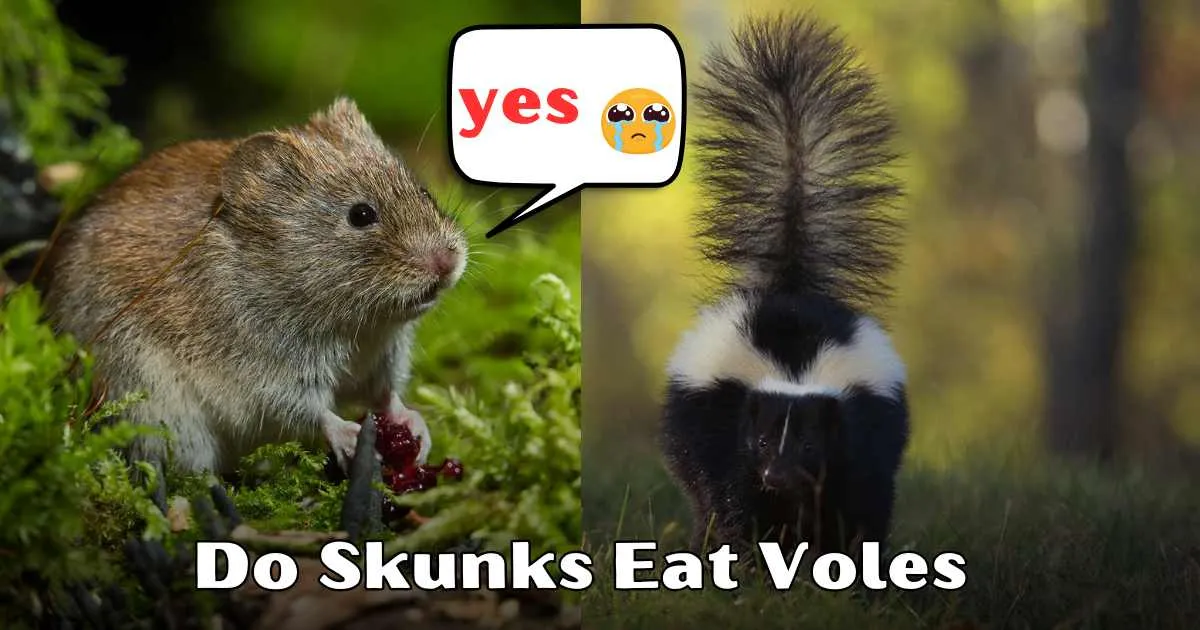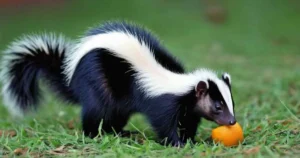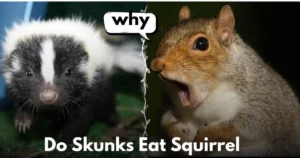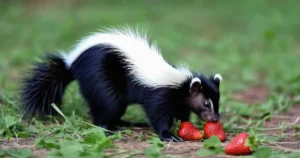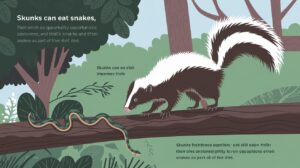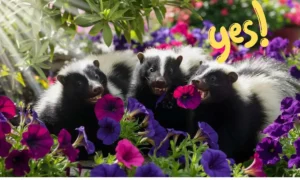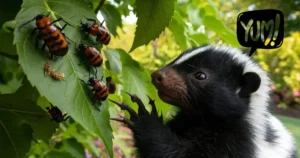Do Skunks Eat Voles? All You Need to Know
Skunks, known for their disDo Skunks Eat Voles? All You Need to Know
Skunks, known for their distinct black-and-white fur and notorious spray, are fascinating creatures with diverse dietary habits. If you’ve ever wondered whether these nocturnal scavengers eat voles, the answer is yes! Skunks are opportunistic eaters and will hunt small mammals like voles, helping to keep their populations under control. Let’s explore how skunks fit into the food web, their feeding behaviors, and why they might be a benefit to your garden or yard.
What Do Skunks Eat?
Omnivorous Diet
Skunks are omnivores, meaning their diet includes both plants and animals. This varied diet makes them highly adaptable to different environments. Here’s a breakdown of what skunks typically eat:
- Insects: Grubs, beetles, and crickets are a major part of their diet.
- Fruits and Plants: Berries, nuts, and roots provide vital nutrients.
- Small Mammals: Voles, mice, and shrews make occasional appearances on their menu.
- Amphibians and Reptiles: Frogs, lizards, and snakes are opportunistic catches.
- Human Food: In urban areas, skunks may scavenge through trash for leftovers.
Skunks’ ability to eat whatever is available allows them to thrive in diverse habitats, from forests to suburban backyards.
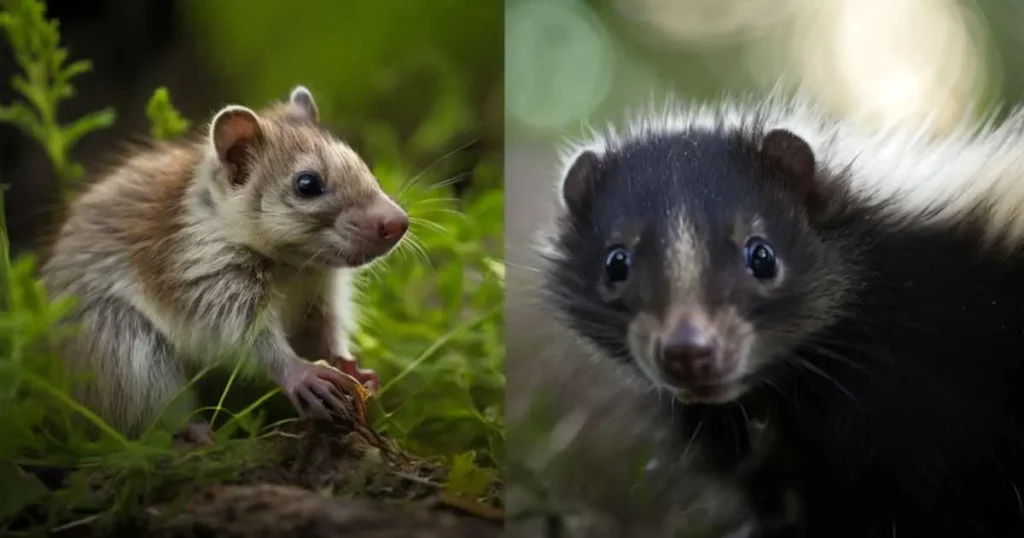
Do Skunks Eat Voles?
Yes, Skunks Hunt Voles
Voles, small rodent-like creatures often found burrowing in yards and gardens, are a part of a skunk’s diet. While not their primary prey, skunks will hunt voles when the opportunity arises.
Why Do Skunks Eat Voles?
- Easy Prey: Voles’ small size and ground-dwelling habits make them an accessible target.
- Nutritional Value: Voles provide a good source of protein, essential for skunks’ energy needs.
- Pest Control: By eating voles, skunks help manage populations that could otherwise damage plants and crops.
How Do Skunks Hunt Voles?
Skunks’ Hunting Techniques
Skunks use a combination of their strong senses and physical adaptations to hunt voles:
Nocturnal Foraging: Active at night, skunks hunt when voles are also most active, increasing the chances of an encounter.
Sense of Smell: Skunks rely on their excellent olfactory abilities to locate voles in underground burrows.
Digging Skills: Equipped with sharp claws, skunks dig into vole tunnels to reach their prey.
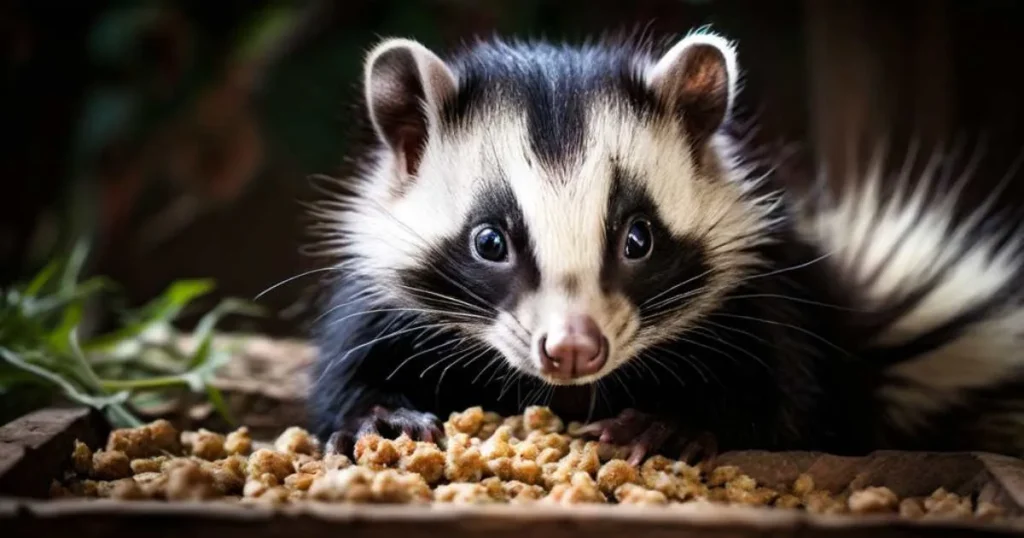
Benefits of Skunks Eating Voles
Natural Pest Control
Voles can wreak havoc on gardens and lawns by burrowing and eating plant roots. Skunks help control vole populations, which benefits homeowners and gardeners.
Ecological Balance
Skunks play an important role in maintaining ecosystem health:
- Population Regulation: By preying on voles, skunks prevent overpopulation, which could lead to environmental degradation.
- Biodiversity Support: Reduced vole activity allows plants and other small creatures to thrive.
How To Protect Your Property from Voles and Skunks
Safeguarding Your Yard
If you want to protect your garden or yard from both voles and skunks, here are some practical tips:
To Deter Skunks:
- Secure Trash Bins: Use tight-fitting lids to prevent scavenging.
- Install Motion-Activated Lights: Skunks prefer dark environments.
- Use Repellents: Sprinkle natural repellents like cayenne pepper around vulnerable areas.
- Block Hiding Spots: Seal openings under decks or sheds where skunks might nest.
To Manage Vole Populations:
Introduce Natural Deterrents: Plant vole-resistant flora like daffodils or mint.
Trim Vegetation: Keep grass short and remove dense vegetation to reduce vole hiding spots.
Use Wire Mesh: Protect plants by installing mesh around their base.
Set Traps: Place humane vole traps near active burrows.
Frequently Asked Questions
Do Skunks Eat Rodents Other Than Voles?
Yes, skunks eat a variety of rodents, including mice, rats, and shrews. Their opportunistic nature means they’ll take advantage of whatever prey is available.
Are Skunks Good for Gardens?
Yes, skunks can benefit gardens by eating pests like voles, grubs, and beetles. However, their digging habits might cause minor damage to lawns.
How Can I Safely Coexist with Skunks?
To coexist peacefully, secure food sources, use humane repellents, and appreciate their role as natural pest controllers. Avoid startling skunks to prevent being sprayed.
Conclusion
Skunks eating voles is a natural and beneficial aspect of their role in the ecosystem. By keeping vole populations in check, skunks help protect gardens, crops, and lawns from damage. While their odor may make them unwelcome guests, skunks are essential players in maintaining ecological balance. With a few precautions, you can coexist with these furry foragers while enjoying the benefits of their pest-control services.

